Compared to last week, western Canadian yearlings traded $2 lower to as much as $5 higher. Strength was once again noted in southern Alberta where heavier yearlings recorded a fresh 52-week high. Calves were relatively unchanged from week-ago levels. Larger groups of quality weaned genetics traded as much $5 above average values. Feather-lite bawlers under […] Read more
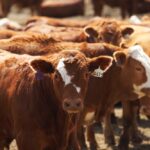
Klassen: Finishing feedlot demand drives yearlings higher

Klassen: Lower beef production supports cash feeder market
Compared to last week, western Canadian yearling prices were relatively unchanged; calf prices traded $2 on either side of week-ago levels. December and February live cattle futures have dropped $8-$10 off the highs while feed grain values have remained firm. Buyers were on the defensive this past week, given the softer outlook for fed cattle […] Read more
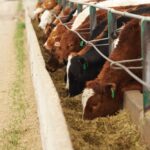
Klassen: Optimistic fed cattle outlook supports feeder market
Compared to last week, western Canadian feeder cattle markets traded $2-$4 higher. Strong demand was noted on yearlings, which spilt over into the lighter weight categories. Major feedlot operators in Alberta set the price structure, with aggressive orders flowing across the Prairies. Some operators have been holding back on purchases due to higher prices; however, […] Read more

Klassen: Stronger live cattle futures lift yearling market
Recent rains rejuvenate Prairie pastures
Compared to last week, western Canadian yearling prices were quoted $3 to as much as $6 higher; calf markets once again traded $3-$5 on either side of unchanged depending on the region. Unbridled buying interest was noted on larger groups of high-quality yearlings. Despite the grass conditions this summer, cattle characteristics are rated above average […] Read more
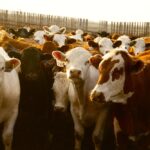
Klassen: Higher input costs limit upside for feeder cattle market
Compared to last week, Western Canadian yearling prices were quite variable trading $5 higher to as much as $6 lower. Calf prices have been consolidating over the past couple weeks and once again traded $3 to $4 on either side of unchanged. Strong demand was evident for 800-pound-plus yearlings fresh off grass. Feedlots in the […] Read more
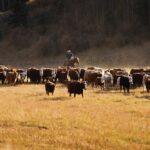
Klassen: Strong demand underpins yearling market
Western Canada will be seeking U.S. corn
Compared to last week, western Canadian yearling prices were unchanged to as much as $4 higher in some cases; calf markets traded $2-$3 on either side of unchanged as prices were quite variable across the Prairies. Major feedlot operators were extremely aggressive for yearlings. Larger groups of one-cut cattle were very well bid. April live […] Read more

Klassen: Drought conditions spur on fall cattle run
Compared to last week, Western Canadian feeder yearling prices were relatively unchanged; calves traded $2 to $5 lower. The fall run has started. Drought like conditions have caused many ranchers to sell cattle 30 to 45 days earlier than normal. Steers averaging 900 pounds were readily trading in the range from $185 to $190; steers […] Read more
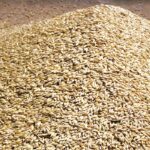
Klassen: Feed barley rally pressures feeder cattle market
Compared to last week, Western Canadian yearling steers traded $4 to $8 lower while heifers were down $2 to $4. Calves traded $5 to as much as $10 below week-ago levels. Feed barley in the Lethbridge area traded in the range of $390/tonne to as high as $415/tonne, up $25-$30/tonne from seven days earlier. Crop […] Read more
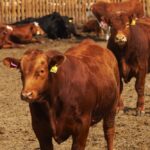
Klassen: Feeder market stays firm
Compared to last week, western Canadian prices for yearlings weighing 800 lbs. and over were unchanged; however, calves and yearlings in the 600- to 800-lb. category traded steady to $3 higher. The calf market was hard to define due to small groups of various quality. Strength in deferred live cattle futures along with the weaker […] Read more

Klassen: Feeder market consolidates
Compared to last week, western Canadian feeder cattle markets traded $2-$3 on either side of unchanged. In central and southern Alberta, quality yearling steers weighing 800 lbs. continue to hover at the psychological range of $200-$210; lower-flesh steers fresh off grass weighing 900 lbs. are readily quoted in the range of $185-$190. Saskatchewan values are […] Read more

